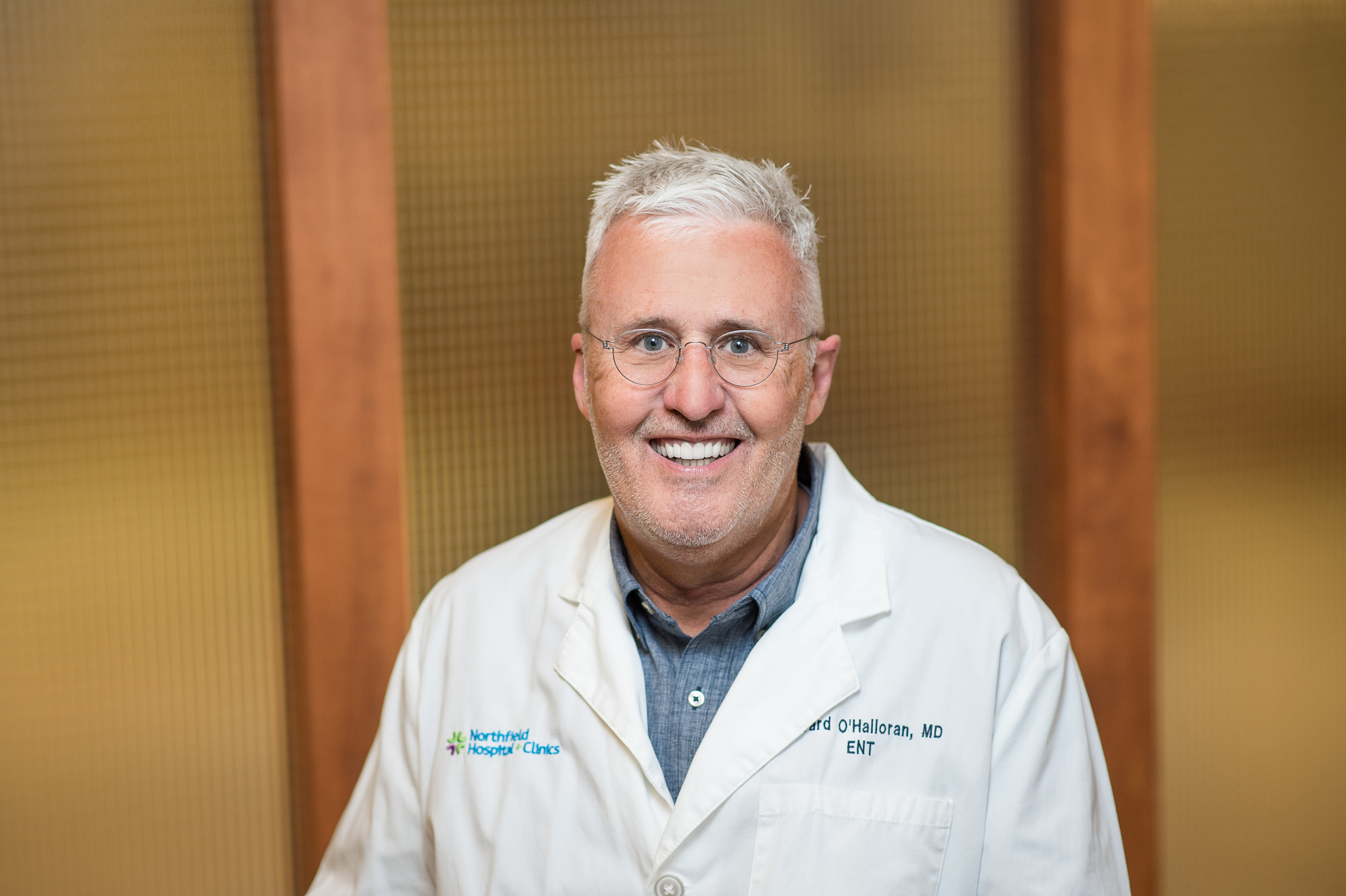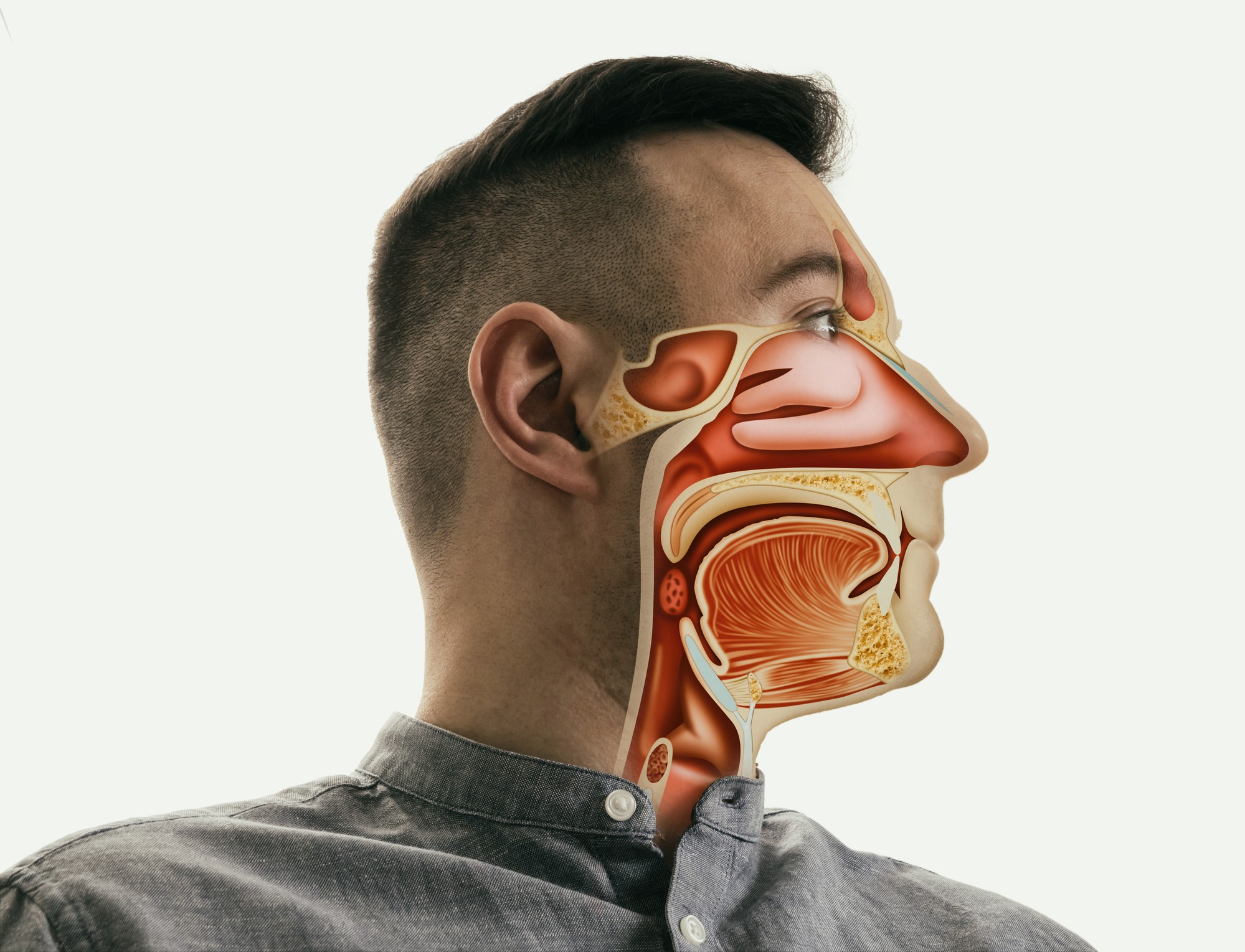Ear, Nose and Throat (ENT) Care for You and Your Family
Your ears, nose and throat provide important functions in your everyday life, so it's not surprising that when something goes wrong with them, it can have a significant impact on your quality of life.
Ear, nose and throat (ENT) specialists (also called otolaryngologists) provide the care and treatment that you need to prevent or eliminate infections and to help manage and treat other conditions like sinus headaches, recurrent ear infections or hearing loss. We'll help you find relief.

Conditions We Treat
- Sinus headaches/frontal migraine headaches
- Sinusitis (recurring or chronic sinus infections)
- Nasal and sinus polyps
- Nasal breathing obstruction
- Children and adults with snoring and/or sleep apnea
- Children with recurrent ear infections or hearing loss
- Skin cancer on the head, face, ears, and neck
- Tinnitus
It is especially important to seek care for tinnitus if it is a new onset, one-sided or pulsatile (sounds like you can hear your heartbeat in your ear.
- Hearing loss
It is crucial to seek urgent care if this is a sudden onset hearing loss. We do our best to offer same day appointments if you are experiencing sudden hearing loss.
When to get care
Adults and children with:
- Chronic headaches
- Facial pressure
- Migraine headaches
- Chronic or recurrent sinus infections
- Nasal breathing problems
- Snoring
- Obstructive sleep apnea
- Recurrent ear infections
- Fluid in ears

Common ENT Treatments
There are many conditions that might affect your ear, nose or throat and there are many treatments, including medicines, surgeries and the use of medical devices. We’ll work with you to determine the best treatment option.
Some of the more common treatments include:
Ear Tubes
When someone has recurrent or chronic ear infections, ear tubes (pressure equalization tubes) are used to relieve problems caused by infections and the fluid buildup that ear infections bring. They are most often used to treat chronic ear infections in children. Small tubes inserted into the ear drum that eventually fall out on their own. The tube prevents fluids from building up behind the eardrum.
Tonsil removal (tonsillectomy)
We might recommend tonsil removal to treat recurrent or chronic tonsillitis, snoring, sleep apnea and other rare tonsil conditions, including cancer. We’ll talk to you about whether or not a tonsillectomy is your best treatment option.
Sinus Surgery
We offer a variety of surgical options to treat your ear, nose and throat problems.
- Nose and sinus surgery
- Tonsillectomy
- Adenoidectomy
- Ear tubes
- Sleep apnea surgery for children and adults
Sleep Studies
Through clinical study, we help you uncover your specific barriers to sleep. We use state-of the-art equipment and best practices to monitor sleep patterns in real time. We focus on helping you identify and overcome sleep disorders.
Nasal Breathing Surgery
ENT Articles

Advice on Your Ears

Swimmer's Ear
ENT Services We Offer
- Adenoidectomy
- Nose and sinus surgery
- Tonsillectomy
- Audiology
- Removal of facial skin cancer
- Ear tubes
- Sleep apnea surgery for children and adults
Our Team of Doctors and Providers



Service Locations

Faribault Clinic

Lakeville Clinic

Northfield Clinic
Information, Resources & Links
Dizzy and Imbalance Disorders
The vestibular system is a sensory system located within your inner ears and brain to help you feel oriented to the space around you and to help you keep your balance. The vestibular system and hearing are located within the same organ in both of your ears.
PA-C Malorie VanWinkle's experience includes working at a vestibular clinic where she focused on diagnosing and managing various dizzy and imbalance disorders. Many vestibular and dizzy disorders require treatment from physical therapists who specialize in vestibular rehabilitation therapy. Vestibular rehabilitation therapists are available at the Lakeville and Northfield locations.
It is generally recommended that you seek emergent care if you are experiencing vertigo/dizziness for the first time.
Common vestibular disorders
BPPV (Benign paroxysmal positional vertigo) – A condition where the small particles, or crystals, in your inner ear become dislodged and need to be repositioned back to their original location. Our ENT providers can help identify when this is the cause and will often send you to physical therapy for treatment.
Vestibular migraine – While you may think you need to have a headache to be diagnosed with vestibular migraine, think again. Vestibular migraine is a very common cause for dizziness. Generally people who have a history of migraine are likely to get this diagnosis, but others can still be diagnosed without a history of migraines themselves. Vestibular migraine can be associated with light sensitivity, sound sensitivity, tinnitus, ear fullness, and dizziness that comes and goes.
Vestibular Neuritis / Labyrinthitis – Occurs when you have inflammation of the inner ear organ itself or the vestibular nerve.
Age related dizziness and imbalance – We rely on the inner ear, eyes, joints, muscles, and our brain to fully sense where our body is in space. As the human body ages these organs can start to deteriorate, which can cause us to feel off balance or dizzy at times.
Meniere's Disease – A relatively rare disorder that is characterized by a fluid buildup within the inner ear causing vertigo, tinnitus, hearing loss or ear fullness.







